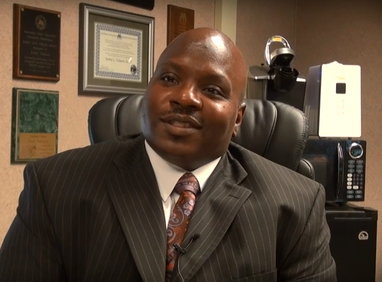
Dr. Robinson: What are the challenges of transporting students post-pandemic?
Dr. Tailson: The pandemic caused many issues for K-12 school districts. One of these issues is transportation to and from school. It is mandated that all students wear masks on school busses. Thus we have to ensure all bus drivers have masks available for all students. We also have to ensure that buses are sanitized before and after every ride. However, the biggest issue is a critical shortage of bus drivers available across the state of Michigan.
Dr. Robinson: How are you, as the leader of a school district, addressing the issue of bus driver shortages?
Dr. Tailson: We have a third-party company with whom we contract transportation services. It is their primary job to find drivers for busses; however, we feel the shortage's effects by fielding calls from parents stating that routes are running behind schedule. It is a severe problem. All of the transportation companies in the metro Detroit area are offering signing bonuses and offering g to pay drivers to receive training to meet the bussing needs in the area.
Dr. Robinson: What are your thoughts on the idea of paying parents a stipend to drive their children to school because of this national bus driver crisis? I also have read in Michigan, some schools have offered gas cards as an incentive to parents who are willing to drive their child to school?
Dr. Tailson: We have used POs parents mileage reimbursement or given parents gas cards in the past for students who are displaced or receive special education services. We've also considered setting up Uber/Lyft services to meet some of our transportation needs.
Dr. Robinson: To what extent do you think, if at all the current shortage of bus drivers, suggest there is room to consider a more permanent look at virtual learning?
Dr. Tailson: I don't support going back to any form of virtual learning if we can help it. Students, for the most part, suffered learning loss over the last 18 months of the pandemic. The majority of the students I serve don't benefit significantly from a virtual learning experience. We need to continue to think outside the box to address transportation shortages.
Dr. Tailson: The pandemic caused many issues for K-12 school districts. One of these issues is transportation to and from school. It is mandated that all students wear masks on school busses. Thus we have to ensure all bus drivers have masks available for all students. We also have to ensure that buses are sanitized before and after every ride. However, the biggest issue is a critical shortage of bus drivers available across the state of Michigan.
Dr. Robinson: How are you, as the leader of a school district, addressing the issue of bus driver shortages?
Dr. Tailson: We have a third-party company with whom we contract transportation services. It is their primary job to find drivers for busses; however, we feel the shortage's effects by fielding calls from parents stating that routes are running behind schedule. It is a severe problem. All of the transportation companies in the metro Detroit area are offering signing bonuses and offering g to pay drivers to receive training to meet the bussing needs in the area.
Dr. Robinson: What are your thoughts on the idea of paying parents a stipend to drive their children to school because of this national bus driver crisis? I also have read in Michigan, some schools have offered gas cards as an incentive to parents who are willing to drive their child to school?
Dr. Tailson: We have used POs parents mileage reimbursement or given parents gas cards in the past for students who are displaced or receive special education services. We've also considered setting up Uber/Lyft services to meet some of our transportation needs.
Dr. Robinson: To what extent do you think, if at all the current shortage of bus drivers, suggest there is room to consider a more permanent look at virtual learning?
Dr. Tailson: I don't support going back to any form of virtual learning if we can help it. Students, for the most part, suffered learning loss over the last 18 months of the pandemic. The majority of the students I serve don't benefit significantly from a virtual learning experience. We need to continue to think outside the box to address transportation shortages.